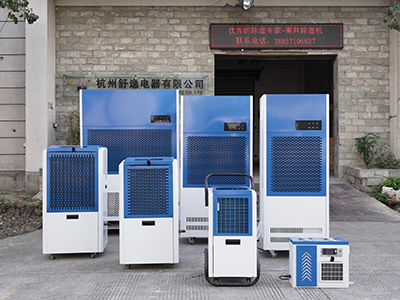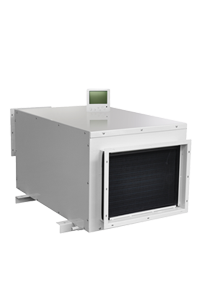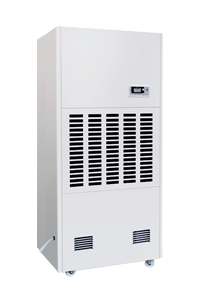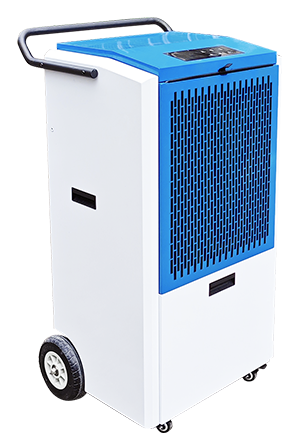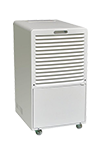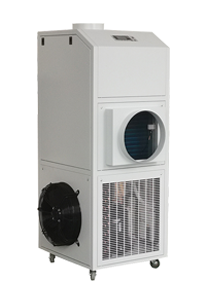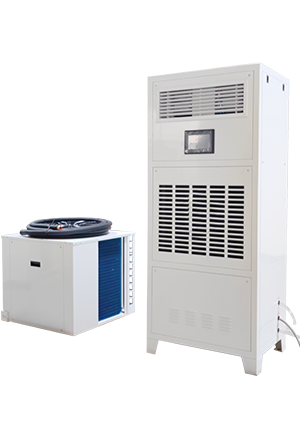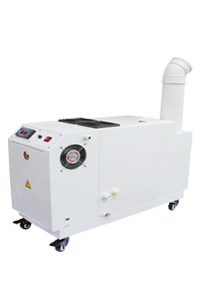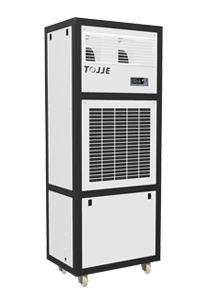News
The humidity problem in basement parking garages is usually more serious than in residential areas, so it is crucial to choose the right industrial dehumidifier. Parking garages are usually large in space, with heavy humidity and complex environments (such as poor air circulation, large temperature differences, etc.), so when choosing an industrial dehumidifier, you need to pay special attention to the following aspects:
1. Dehumidification capacity matches area
● Dehumidification capacity (L/day): The dehumidification capacity of an industrial dehumidifier is usually measured by the amount of water that can be dehumidified per day (liters/day). The humidity in basement parking garages is usually high, so you need to choose equipment with stronger dehumidification capacity. When choosing, you should determine the required dehumidification capacity based on the area of the basement, the humidity level, and the degree of airtightness of the space.
● Small underground garage (50-100 square meters): dehumidification capacity 90L/day.
● Medium-sized underground garage (100-200 square meters): dehumidification capacity 168L/day.
● Large underground garage (200-800 square meters): dehumidification capacity 240L/day, 480L/day.
● Super large underground garage (over 1000 square meters): dehumidification capacity 480L/day, 960L/day.
● Humidity requirements: Underground garages usually have high humidity, and the ideal humidity range should be controlled between 50%-60%. If the humidity is too high (such as more than 70%), it will cause mold on the walls and the ground, rust on iron parts, and even affect the performance of the vehicle.
2. Space ventilation and environmental factors
● Air circulation: Basement parking garages generally lack natural ventilation, so when choosing a dehumidifier, it is very important to consider its performance in a closed environment. Strong dehumidification capacity and long-lasting and stable operating efficiency are the key.
● Temperature fluctuations: Underground garages often face temperature fluctuations (such as colder winters and hotter summers), so it is necessary to choose an industrial dehumidifier that adapts to low temperature environments. Usually the operating temperature range of industrial dehumidifiers can be between 5°C and 35°C.
3. Drainage method
● Direct drainage: It is recommended to choose a dehumidifier with direct drainage function. This can discharge water directly into the sewer through a hose, reducing the trouble of manual pouring.
4. Additional features
● Intelligent control: Some industrial dehumidifiers come with intelligent control systems that can be controlled via RS485 remote management, adjusting humidity, timer switches, etc. This is especially useful for large garages, where humidity levels can be monitored in real time.
● Automatic restart function: Some high-end models have an automatic restart function that automatically resumes work after a power outage, avoiding manual operation.
Summary:
When choosing an industrial dehumidifier for a basement parking garage, dehumidification capacity and the ability to adapt to the environment are the most important considerations. When purchasing, make sure that the equipment can meet the area, humidity and temperature requirements of the garage, and has functions such as automatic drainage, intelligent control and high efficiency. It is recommended to choose equipment with better quality and pay attention to long-term stability and after-sales service.
